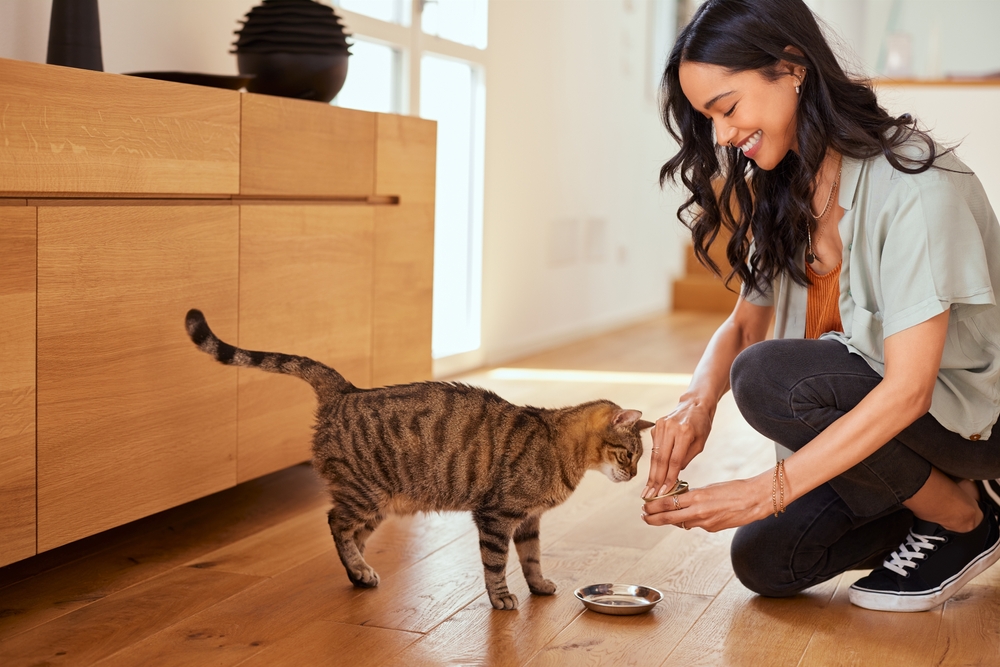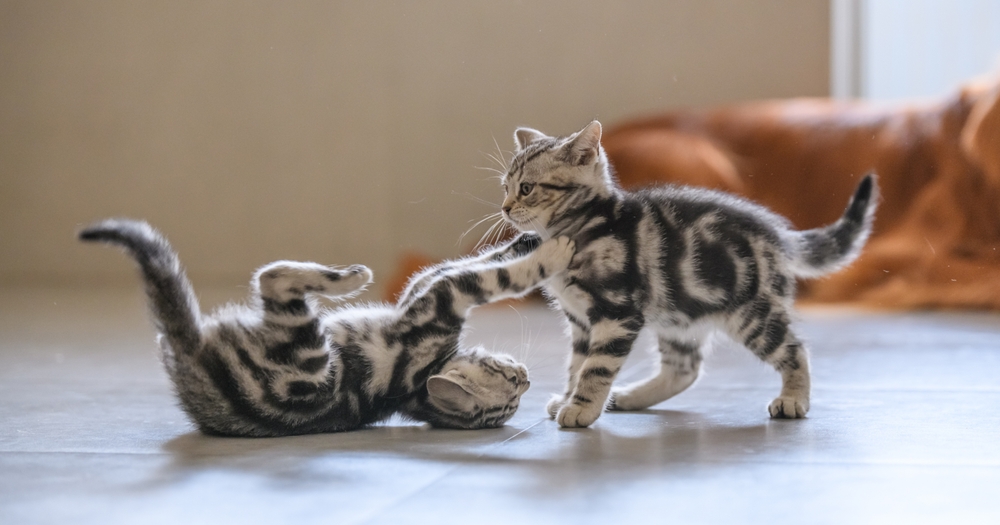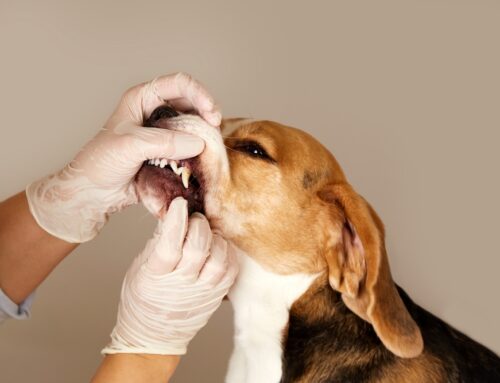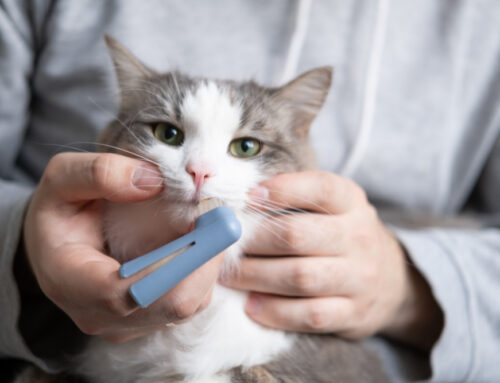Welcoming a kitten into your home comes with great responsibility, including ensuring they receive the proper nutrition. Kittens’ dietary needs differ from adult cats, so it’s crucial to provide them with a balanced diet tailored to their specific requirements. To help your kitten grow into a happy, healthy adult, our Cane Bay Veterinary Clinic team shares essential nutrition tips.
#1: Choose high-quality kitten food
Opt for kitten food specially formulated to meet the nutritional needs of growing cats. Look for labels that specify “kitten” or “growth” to ensure the food contains the correct balance of essential nutrients like protein, vitamins, and minerals necessary for healthy development. Avoid diets that contain artificial colors, flavorings, and other additives that can prove detrimental to your kitten’s long-term health.
While every pet is an individual, our veterinarians find that the majority of kittens thrive when fed Purina diets. Backed by extensive research, Purina diets are formulated with high-quality ingredients designed to support the unique dietary needs of cats at every life stage and with various health conditions. Discuss which diet would be most appropriate for your kitten with our Cane Bay Veterinary Clinic team, and then have their food shipped directly to your home.
#2: Feed your kitten frequent small meals
Despite being domesticated, cats are still designed to eat several small meals a day instead of gorging on one or two large portions. Kittens grow at an incredibly fast rate during the first few months of life, so they require small meals spaced throughout the day to ensure their blood sugar levels remain stable and to prevent overeating.
#3: Use puzzle feeders to stimulate your kitten’s instincts
Eating from a food bowl is boring, plus it often contributes to obesity in pets. Unleash your kitten’s inner wild side by feeding them from food puzzles designed to stimulate their hunting instincts. Stuffable mice, silicone mats, and a variety of other food puzzles encourage your kitten to flex their muscles and their brain to earn their meal, and help stave off boredom and weight gain.
#4: Provide fresh water for your kitten
Always have fresh, clean water available for your kitten. Hydration is essential for their overall health and helps prevent urinary tract issues. Ensure that your kitten’s water bowl is easily accessible and cleaned regularly to maintain hygiene. To further encourage your kitten to drink, consider buying a drinking fountain. Cats often prefer running water over drinking from a stagnant bowl, so you can likely boost your kitten’s water intake with a pet drinking fountain.
#5: Learn how to assess your kitten’s body condition
With 61% of cats classified as overweight or obese, knowing how to tell if your feline friend is too heavy is important for their health. Use a body condition score chart to learn how to assess your kitten’s body condition score and help them maintain a healthy weight. Ideally, you should be able to feel your kitten’s ribs when applying slight pressure. You should also be able to see a visible waistline when you smooth down your kitten’s fluffy fur.
#6: Transition your kitten to an adult diet at the appropriate age

Diets formulated for kittens have higher levels of protein, fat, and calories than diets for adult cats. If you continue to feed your cat kitten food, they will rapidly gain an unhealthy amount of weight. In most situations, a kitten can be transitioned from a kitten diet to an adult cat formula around 6 months of age. At this age, the explosive growth period is typically complete and your kitten will likely be spayed or neutered, so they will no longer require the additional calories.
Switch your kitten to adult food by purchasing the same brand and flavor to stay consistent. Then, slowly increase the amount of adult food you mix in with their regular diet over a week. Watch for vomiting, diarrhea, or other signs that your kitten is not tolerating the transition well, and contact our team for advice if you experience issues.
By following these nutrition tips, you can ensure that your kitten receives the essential nutrients they need for optimal growth and development. For help determining the best diet for your growing kitten, contact our Cane Bay Veterinary Clinic team.






Leave A Comment